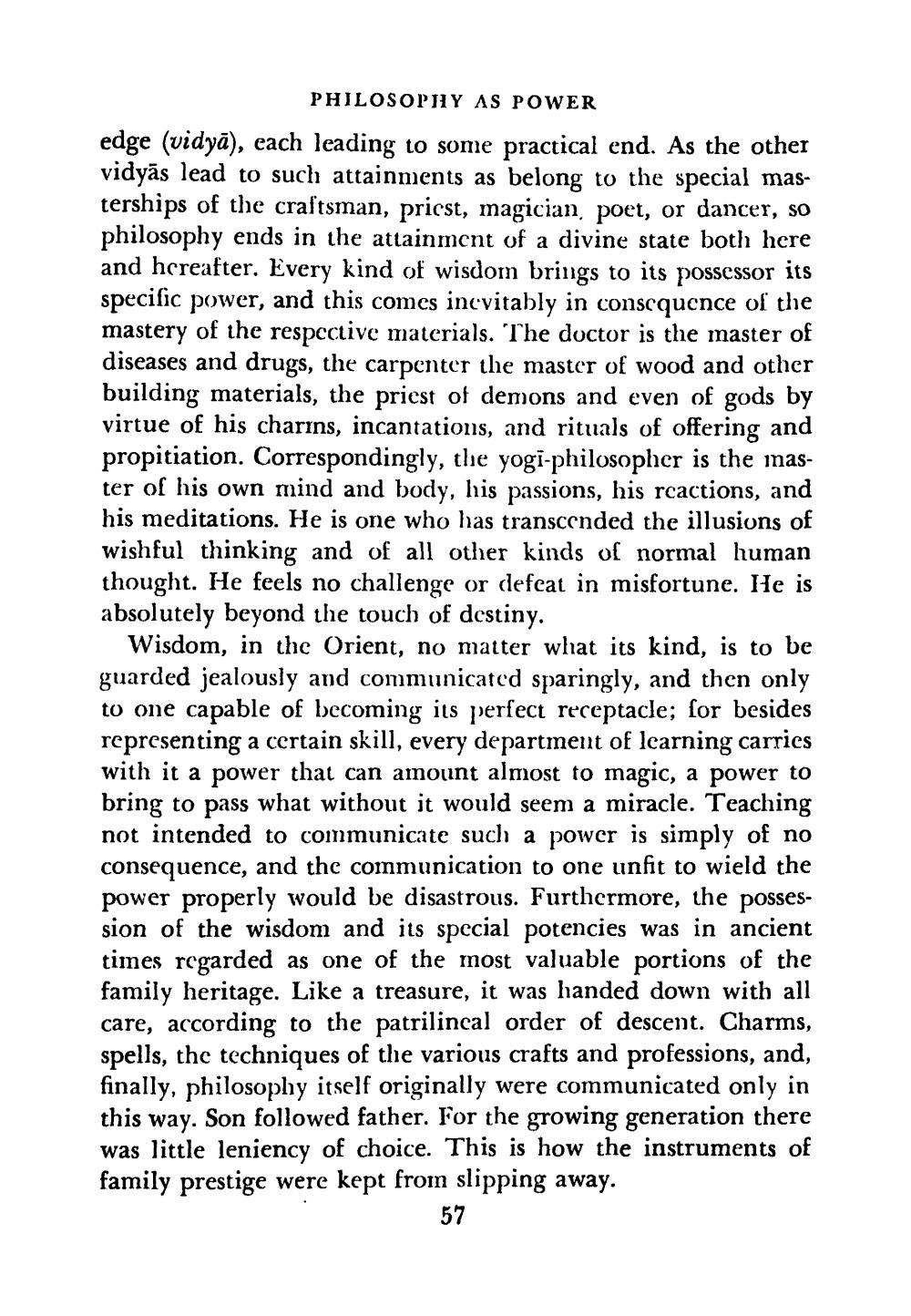________________
PHILOSOPHY AS POWER
edge (vidya), each leading to some practical end. As the other vidyas lead to such attainments as belong to the special masterships of the craftsman, priest, magician, poet, or dancer, so philosophy ends in the attainment of a divine state both here and hereafter. Every kind of wisdom brings to its possessor its specific power, and this comes inevitably in consequence of the mastery of the respective materials. The doctor is the master of diseases and drugs, the carpenter the master of wood and other building materials, the priest of demons and even of gods by virtue of his charms, incantations, and rituals of offering and propitiation. Correspondingly, the yogi-philosopher is the master of his own mind and body, his passions, his reactions, and his meditations. He is one who has transcended the illusions of wishful thinking and of all other kinds of normal human thought. He feels no challenge or defeat in misfortune. He is absolutely beyond the touch of destiny.
Wisdom, in the Orient, no matter what its kind, is to be guarded jealously and communicated sparingly, and then only to one capable of becoming its perfect receptacle; for besides representing a certain skill, every department of learning carries with it a power that can amount almost to magic, a power to bring to pass what without it would seem a miracle. Teaching not intended to communicate such a power is simply of no consequence, and the communication to one unfit to wield the power properly would be disastrous. Furthermore, the possession of the wisdom and its special potencies was in ancient times regarded as one of the most valuable portions of the family heritage. Like a treasure, it was handed down with all care, according to the patrilineal order of descent. Charms, spells, the techniques of the various crafts and professions, and, finally, philosophy itself originally were communicated only in this way. Son followed father. For the growing generation there was little leniency of choice. This is how the instruments of family prestige were kept from slipping away.
57




